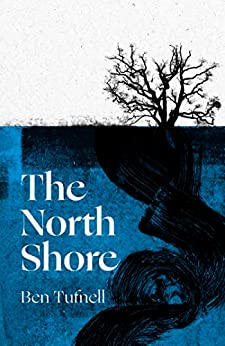Over the past ten years, we have seen a seismic upsurge of interest and enthusiasm for what has come to be known as folk horror, a peculiarly British brand of weird fiction characterised by subtle intimations of the supernatural, an understated delivery and most crucially an interest in landscape and sense of place. The folk horror revival has produced some excellent work, texts that have already earned their place in the canon and will endure as classics. It has also produced its own share of duds, derivative works that rely too much on familiar tropes and showing little inclination to break new ground. All literary movements tend to run to a law of diminishing returns, and such disappointments are inevitable. Which makes it all the more marvellous when out of nowhere something brilliant arrives to surprise you.

Ben Tufnell’s novel The North Shore is that rare beast, a work of folk horror that holds its own with the classics whilst exhibiting genuine points of difference, a radical literary sensibility combined with an old-fashioned appetite for the strange that will, I am sure, see me returning to this novel repeatedly for new inspiration.
The unnamed narrator – we learn only their initials – grows up somewhere on the north Norfolk coast (I am guessing Salthouse, or Stiffkey), a landscape of treacherous marshland and sudden storms. Alone on the shore during one such storm, the narrator unwittingly becomes a part of something extraordinary, an event that will mark their life while never fully revealing the true extent of its mystery.
Ben Tufnell is a museum curator and writer on art, so while it is not entirely surprising to find him bringing aspects of art criticism into his narrative it is entirely to be welcomed. His writing on the transformative power of Dürer and Bosch came as a real joy for me, and the landscape writing – a vividly sensuous evocation of liminal spaces – is truly exceptional.
To mix folk horror with film criticism and botanical illustration – yes, please! The narrator’s own uncertainty over what they have experienced, the ways in which the potentially treacherous landscape reflects their personal isolation – this is a timeless book, one that will outlast any fashion and repay close attention. The author’s refusal to provide any easy conclusion or explanation enhances the whole.
This elegant, thought-filled book has been an unexpected delight during a difficult week and I am already looking forward to Ben Tufnell’s next novel.